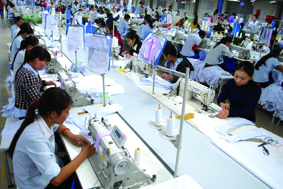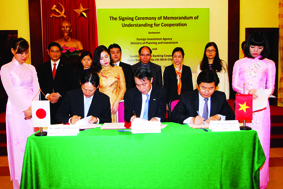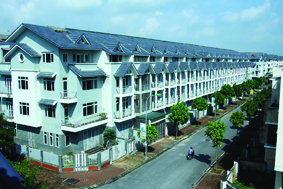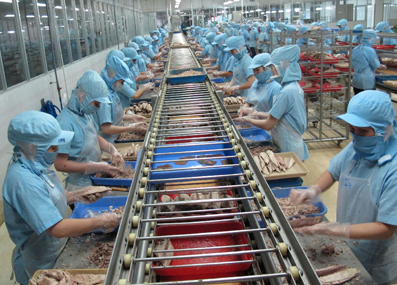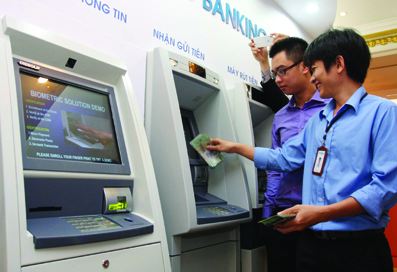Frederick Burke - Managing Partner and Nguyen Thanh Hai – Associate
Baker & McKenzie (Vietnam) Ltd.
In recent years, Vietnam’s growing economy and socio-economic development has led to an increased need for new investment in infrastructure projects and their operation, as well as the need to augment capacity for the provision of public services. In this economic climate, Vietnam has prioritized investment in the form of Public - Private Partnerships (PPP).
According to a recent proposal of the Ministry of Planning and Investment (MPI) to the Government regarding PPP, the capital needed for infrastructure construction in Vietnam in the next ten (10) years is estimated as around USD 400 billion, of which only around 40-50 percent can be mobilized from the state capital sources. This means that the remaining 50-60 percent is expected to be mobilized from the private sector.
In Vietnam, the Investment Law, the Public Investment Law, the Bidding Law, the Construction Law, and the Law on Public Debt Management are the main highest bodies of law which govern investment in the PPP form for infrastructure projects and the provision of public services.
The most recent and main legal document specifically governing PPP projects is Decree No. 15/2015/ND-CP issued by the Government on February 14, 2015 (Decree No. 15). Decree No. 15 is aimed at improving and streamlining the legal framework for PPPs to attract and strengthen investment opportunities in infrastructure projects and the provision of public services. Further, Decree No. 15 supersedes past legal documents, particularly Decision No. 71 on PPP forms of pilot investment, and Decree No. 108 on Build-Operate-Transfer (BOT), Build-Transfer-Operate (BTO) and Build-Transfer (BT) projects.
Specifically, Decree No. 15 consolidates the current regulations concerning such projects and addresses issues, inconsistencies and difficulties in their implementation. In addition, it specifies other forms of project contracts, including: Build-Own-Operate (BOO), Build-Transfer-Lease (BTL), Build-Lease-Transfer (BLT), and Operate-Manage (O&M), adding to the variants of “BOT” structures available in Vietnam since the 1990s.
Decree No. 15 was designed to provide basic principles and general regulations to ensure flexibility for PPP projects with different scales and in different areas/sectors. Based on this decree, the MPI and other ministries were expected to issue a number of circulars or joint circulars to provide for further detailed guidelines for the implementation of this decree, depending on the characteristics and demand for attracting the PPP investment of each sector.
We set out below some aspects of the legal framework provided by Decree No. 15 regarding investment in the PPP form in Vietnam.
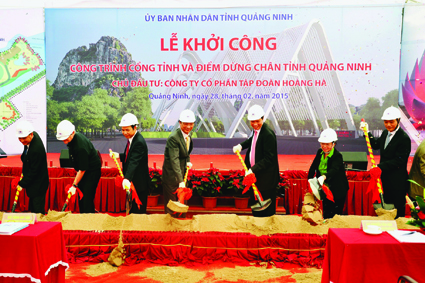 |
Leaders of Quang Ninh province break the ground for a local PPP project__Photo: Nguyen Hoang/VNA |
Wider range of investment sectors for PPP projects
Compared to the current regulations, Decree No. 15 widens the scope of sectors in which investment may be implemented in the form of PPP by adding the following new project categories to the prior list of traditional infrastructure projects:
(a) All transport infrastructure facilities and related services (but not only limited to the transport infrastructure facilities as listed in the current regulations).
(b) Lighting systems; social housing, resettlement housing, cemeteries;
(c) Commercial infrastructure facilities, science and technology, hydro-meteorological facilities, economic zones, industrial zones, high technology zones, information technology focused zones and information technology applications; and
(d) Agricultural and rural infrastruc-ture facilities, services for developing and connecting agricultural production with processing and sales of products.
New mechanisms for capital sources for the implementation of PPP projects
Decree No. 15 removes the ceiling on the State participating portion or the State’s investment capital in PPP projects. This is expected to alleviate some of the concerns in relation to the feasibility and bankability of PPP projects, which have arisen under the current regulations.
Current legislation requires that the total value of the State participating portion must not exceed 30 percent of the total investment value/level of a pilot PPP project. Legislation governing BOT, BTO and BT contracts, which are currently governed separately from pilot PPPs, provides that the total state-owned capital used to carry out a project must not exceed 49 percent of the total investment capital of such a project.
However, Decree No. 15 places stricter requirements on the mechanisms managing State investment capital. These include conditions and requirements on the disbursement of State investment capital and limitations on the purposes for which State investment capital can be used on a particular PPP project.
Specifically, as per Decree No. 15, the state-invested capital in a project, can only be used to conduct the following activities:
(a) Contributing capital to support the construction of facilities for business projects which have income from charges to users, but such income is not sufficient to recover investment capital and profits;
(b) Making payments to investors who provide services under BTL contracts, BLT contracts and other similar contracts; and
(c) Supporting the construction of auxiliary facilities, organizing compensation, site clearance and resettlement for PPP projects.
The use of the state-invested capital mentioned in Points (a) and (b) above is limited to only projects, which are proposed by the ministries and other authorities, or projects which use ODA capital or overseas concessional loans.
This state-invested capital is not included in the total investment capital to determine the ratio of an owner’s equity capital.
Regarding the disbursement of state-invested capital, Decree No. 15 sets out the following requirements:
(a) For the state-contributed capital used for supporting the construction of project facilities:
(i) The capital will be disbursed after the volume and value of the construction facilities are completed, in accordance with agreements under the project contract; and
(ii) The authorized state agency will grant and make payment to the investors and the project enterprise according to the ratio, value, progress and conditions as agreed in the project contract. This payment will be based on the volume and value of the completed construction accepted by investors and the project enterprise.
(b) For the state capital used for payment to investors who provide services under a BTL or BLT project contract or another similar project contract, in accordance with agreements under the project contract:
(i) The capital will be disbursed from the time the service is provided; and
(ii) This payment will be made periodically on the basis of quantity and quality of the services provided.
(c) The utilization of the land to create sources of capital to be paid to investors who implement a BT contract, must be approved by a competent state agency.
With respect to the regulations on the owner’s equity capital and mobilized capital of the investors, Decree No. 15 essentially inherits the regulations of Decree No. 108 as follows:
(a) Investors must take responsibility for contributing the owner’s equity capital and mobilizing other capital sources in accordance with the agreement under the project contract.
(b) The amount of the owner’s equity of investors capital must not be lower than 15 percent of the amount of the total investment capital.
(c) For a PPP project with total investment capital of an amount of more than VND 1,500 billion, the ratio of the owner’s equity capital will be determined progressively as follows:
(i) For the capital portion of up to VND 1,500 billion, the ratio of the owner’s equity capital must not be lower than 15% of the capital portion; and
(ii) For the capital portion of more than VND 1,500 billion, the ratio of the owner’s equity capital must not be lower than 10% of the capital portion.
Incentives, guarantees and assurance for the investment in PPP projects
In general, Decree No. 15 inherits the incentives, guarantees and assurances as provided in the current regulations on corporate income tax incentives; incentives for goods which are imported to implement the project; incentives on land use fees and land rent; taxes applicable to contractors; the right to mortgage over assets; the right to buy foreign currency and remit abroad capital, profits and proceeds from investment liquidation; assurance for the supply of public services; and assurance for rights of ownership over assets.
An added bonus lies in Decree No. 15 providing even more benefits than under prior law:
(a) the decree supplements assurances that the purpose of use of the project land remains unchanged over the entire term of the implementation of the project contract; and
(b) the decree supplements the right to mortgage rights of business over project facilities in addition to other assets, to facilitate investors’ access to capital sources for PPP projects.
However, Decree No. 15 fails to settle some of the issues that impact bankability. Specifically, it does not provide for the provision of Government guarantees on minimum revenue, nor does it mention any specific mechanisms for risk allocation for investors and lenders. Also, amid concerns over sources of foreign currency at the national reserve, the assurance for the balance of foreign currency can only be granted to certain important projects as made eligible under certain Government decisions and programs.
As guarantee for minimum revenue is one of the most important requirements to foreign investors and lenders, a worthwhile option would be for the Government and relevant ministries to review and provide specific legal basis for such a guarantee, whether in the implementing legal circulars to be issued, or on a project-by-project basis.
Improved mechanism for project step-in right of lenders
From a lender’s perspective, Decree No. 15 creates a more flexible mechanism for the lender to exercise its project step-in right. In particular, compared to the current regulations, Decree No. 15 adds that the agreement on project step-in right must be made between the lender and the authorized State agency or between the lender and the parties to the project contract. Also, the lender and the authorized State agency can decide the time to sign the agreement on project step-in right. It appears to mean that the lender can directly enter into an agreement on step-in right with the authorized State agency. In such case, however, Decree No. 15 does not discuss how to address any inconsistency between this agreement on project step-in right and the provisions on project step-in right of the lender under the project contract and loan agreement.
Simplified procedures for project enterprise establishment
Decree No. 15 applies a “registration” procedure, instead of the “appraisal” procedure (as applied under the current regulations). This development is to follow the new Law on Investment and the Government’s on-going efforts of simplifying administrative procedures in Vietnam. Accordingly, the timeline for issuing the investment registration certificate is reduced from 45 days to 25 days. Also, the number of sets of the required application dossier is reduced from 10 sets to 5 sets.
More flexible responsibility to formulate feasibility study report
Under Decree No. 15, the State agency can assign investors to formulate feasibility study reports for their proposed projects.
In addition, Decree No. 15 develops the required content of a feasibility study report. It focuses on such topics as project outcome factors and project feasibility, including the ability to raise project capital, assessments of market demand, market payment, and project lender/investor concerns.
Applicability of foreign law
Under Decree No. 15, parties can decide to apply foreign law to govern the following contracts:
(a) A project contract where one party is a foreign investor; and
(b) Contracts in which the Government of Vietnam guarantees discharge of contractual obligations of the investors, the project enterprise and other enterprises participating in the project’s implementation.
However, Decree No. 15 imposes a qualification that the agreement on the application of foreign law must not be contrary to regulations under Vietnamese law on the selection and application of foreign law. For the time being, those rules allow a court to refuse the application of foreign law where it is inconsistent with the fundamental principles of Vietnamese law, a concept that few can define.
Dispute resolution
Decree No. 15 provides that disputes between the authorized State agency and (1) a foreign investor or (2) a project enterprise established by a foreign investor, can be resolved by, in addition to Vietnamese arbitration or court, an arbitration tribunal the parties agree to establish. This additional option is exclusively available for disputes during the process of implementation of a project contract and/or other contracts guaranteed by the Government of Vietnam. However, the issue of whether it is legally permissible to provide for arbitration abroad is not entirely clear.
In addition, Decree No. 15 clarifies that disputes to be settled by arbitration in accordance with provisions in a project contract, or related contracts, will be deemed “commercial” in nature (which is a requirement for arbitration under Vietnam’s Law on Commercial Arbitration).
Transitional provisions
As Decree No. 15 is only effective as of April 10, 2015, it also makes transitional provisions in order to maintain the stability of the investment environment for PPP projects in Vietnam. These transitional provisions are as follows:
(a) The project lists, which are made prior to April 10, 2015, will be reviewed and re-approved, in accordance with Decree No. 15 (except the cases approved by the Prime Minister).
(b) Feasibility study reports, which are approved prior to April 10, 2015, are not required to be re-approved in accordance with Decree No. 15.
(c) Projects for which the decision on the selection of investors is issued prior to April 10, 2015, are not required to re-select investors.
(d) Project contracts, which are initialled prior to April 10, 2015, are not required to be re-negotiated.
(e) Projects for which investment certificates are issued, or project contracts, which are formally signed off, prior to April 10, 2015, will continue to be implemented in accordance with the provisions in such investment certificate and project contracts.
(f) Projects for which the Prime Minister, ministries, or provincial People’s Committees have issued a written undertaking or approval on the use of state capital for such projects’ implementation, investment incentives, guarantees and other matters related to project implementation will continue to be implemented in accordance with such undertaking or approval.
(g) Any other cases are considered and implemented in accordance with the decision of the Prime Minister at the proposal of the MPI.
Conclusion
The issuance of Decree No. 15 is a significant development in the PPP framework in Vietnam. This developing framework still leaves a number of issues uncertain, or too general, and it will take time for the implementing rules to be developed in the form of circulars or joint circulars of the MPI and other ministries. In the meantime, financial institutions and investors should nonetheless review these new rules and take the necessary steps to best position themselves for growing investment opportunities in infrastructure projects and the provision of public services in Vietnam.-
